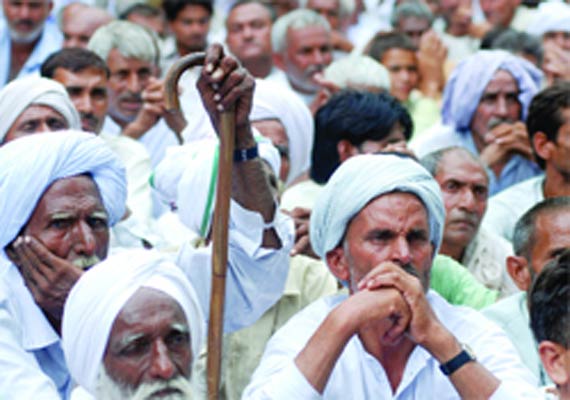New Delhi, Nov 13: The Centre is considering a proposal to drastically relax the definition of "creamy layer" for the OBC quota to enable those with an annual income of Rs 12 lakh in metros to qualify for quota benefits, reports Times of India. This will shoot up the number number of backward caste members eligible for reservation benefits.
The eligibility level is proposed to be raised to Rs 9 lakh in non-metro cities, marking a two-fold hike from the existing ceiling of Rs 4.5 lakh to bar the "creamy" OBCs from availing of reservations in jobs and educational institutions.
The recommendation of National Commission for Backward Classes (NCBC) is being processed by the Union social justice ministry, and will be applauded by the dominant OBCs who have long cried hoarse that the current ceiling was unrealistic and was the reason why posts as well as seats remain vacant.
'Creamy layer' is the salary limit beyond which an individual from backward caste ceases to be eligible for job and education quota. The concept seeks to weed out the affluent backwards to help the needy ones.
Going by the market scenario, a monthly salary of Rs 1 lakh in a metro would qualify significant professionals and white-collar workers for affirmative action benefits, changing the nature of OBC members who make it to the quota net. Till now, the filter has been so tight that even the moderately well-paid backwards remained excluded.
While the liberal revision of 'creamy layer' could trigger a controversy, sources said the backward panel, headed by M N Rao, stated that affirmative action revolves around 'social discrimination' and economic advancement alone cannot determine social advancement. Quoting key Supreme Court judgments on 'creamy layer', the NCBC argued that the basis of exclusion can be economic only if the financial advancement is high enough to translate into social progress.
The easing of income criteria may be contested by general sections, who have ignored the 'discrimination' angle to demand that well-off backwards be kept out.Their arguments have centred around the pique that poor upper castes are not given similar government assistance.
The sentiment came out clearly during UPA 1's policy for 'OBC quota in central educational institutions' when protesters demanded and ensured introduction of 'creamy layer'.
Realizing the issue's contentious nature, NCBC has made a strong case for upward revision of income limit. Quoting the share of OBCs in central services, he said the aggregate was only 7% - Group A (5.5%), Group B (3.9%), Group C (8.1%) and Group D (5%).
The representation of OBCs in central PSUs was 20% in 2008-09. It argued that OBCs were not able to exhaust the 27% of quota because of unrealistic income bar that kept out bulk of aspirants.
To bolster its argument, NCBC said that as per Union ministry of statistics, the value of Rs 100 in 1993 has dwindled to Rs 29 in 2011, which makes income limits like Rs 4.5 lakh redundant.

